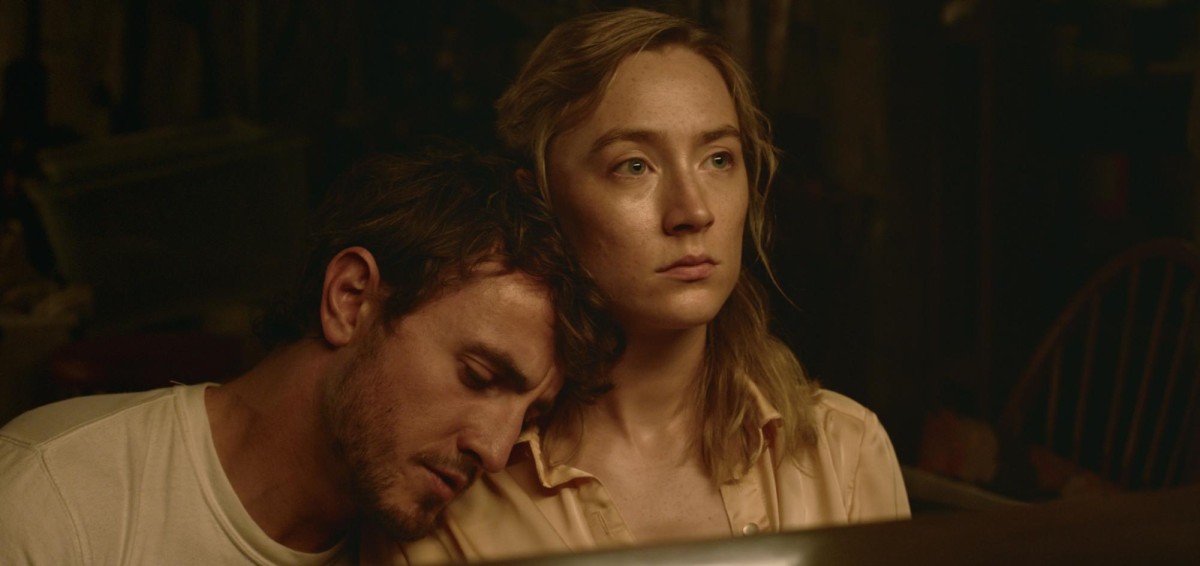While the real world has only more generally raised concerns about artificial intelligence over the past decade, cinema has grappled with the idea of artificial beings for decades. From classics such as Stanley Kubrick’s 1968 space opera “2001: A Space Odyssey” to recent critical darlings like 2013’s “Her” and 2014’s “Ex Machina,” a machine’s ability to perform tasks on its own has been a popular sci-fi trope long before the 2022 release of ChatGPT. Australian director Garth Davis, known for his moving 2016 debut “Lion,” has added a new entry to the subgenre with his third film, “Foe.” While “Foe” has big ambitions, it falters by relying too heavily on cliches and melodrama.
It’s the year 2065 in Midwestern America, and husband and wife Junior (Paul Mescal) and Hen (Saoirse Ronan) live on a farm that’s been in the former’s family for centuries. The young couple is one of the last few living in a traditional shingle-style home, and despite the new lifestyle changes the world has adopted, such as interplanetary colonization, the duo still insists on the ways of their ancestors. The environment has been devastated by human activity, the land surrounding the home being all desert with no vegetation. Humans have been searching for a new place to call home, depending on the sky for this purpose.
Life changes for Junior and Hen when a sleek car, completely unfitting of the farmland, arrives at their doorstep. The driver is government employee Terrance (Aaron Pierre), and he brings with him supposedly positive news: Junior has been selected as a candidate for a trial of an off-world colonization facility in space, while Hen has not. Nothing is to be done immediately, but Terrance tells Junior and Hen to prepare for the day of separation.
Terrance and the space migration program don’t make a second visit until a year after the first, when he says he will need to spend time at the home because — surprise — an artificial clone of Junior will be made to live with Hen, the high-tech equivalent of a military wife’s photo on the mantle. Terrance states that this robot will allow their marriage to survive while Hen waits for Junior’s trial stay to be over. Terrance speaks to each spouse privately to ask about their feelings toward one another. Tension grows as the date gets closer and closer, and despite Terrance’s intentions to make the marriage last, there seems to be no hope.
Like most sci-fi films, “Foe” is a marvel for the eyes. The film’s Midwestern backdrop is unlike what it is today; vast fertile farmlands and stretching rivers are replaced by sandy fields and dried-up lakes. Cinematographer Mátyás Erdély’s camera work is beautiful, especially the aerial shots of the pink lakes of Western Australia, where the film was shot. There are also many great visuals of the new cities being built in outer space for humans to move into, thanks to the detailed visual effects. The setting fits perfectly with a story that handles the consequences of climate change, giving the film some leverage with its overall execution.
“Foe” falters for many reasons, however — most of them to do with its screenplay. Davis and Ian Reid, who wrote the 2018 novel sharing the movie’s name and serving as inspiration for the movie — wrote the screenplay. While being set up as a story about the dystopian future in its first act, the movie fails to capture the viewer because it starts to focus more on the intricacies of a strained marriage rather than on the environment. This shift in focus leads to excessive cliches that allow Hen and Junior’s relationship to be defined only by generic terms that could easily be found in a standard rom-com.
Despite Ronan’s and Mescal’s talents, the movie falters because it relies too much on their performances. The script doesn’t offer the best dialogue for Ronan and Mescal to elevate the material, and they are only able to pull viewers in because their chemistry seems believable and convincing.
It is a great disappointment that “Foe” is not compelling viewing, given its subject matter. For a film that tackles climate change and the rise of artificial intelligence — two of society’s greatest concerns today — the story’s concept had a lot of potential to be a captivating and seminal piece of work. However, the viewing experience feels lacking once the credits roll, leaving nothing more than a cloud of dust in its wake.
Contact Madeline Kane at [email protected].























































































































































